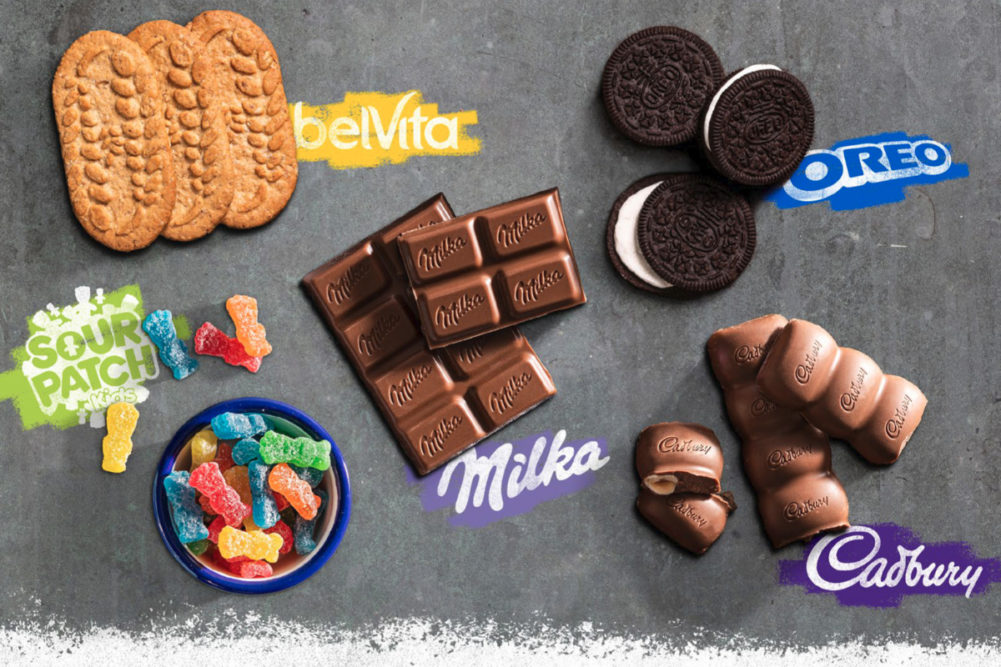CHICAGO — Mondelez International, Inc. has made it a priority to lead the future of snacking. To do so, the company must continue to evolve its portfolio to meet consumers’ snacking needs, said Dirk Van de Put, chairman and chief executive officer.
Mr. Van de Put identified the evolution of its portfolio as one of the core elements that make up Mondelez’s ambition to build a sustainable snacking company. He discussed Mondelez’s progress on a wide range of initiatives as part of a May 26 conference call in connection with the release of the company’s “2020 Snacking Made Right Report.” The report highlights the company’s significant progress toward achieving its 2025 sustainable and mindful snacking goals.
“Leading the future of snacking means evolving our portfolio to meet consumers’ snacking needs,” Mr. Van de Put said. “We do this by offering a broad range of snacks with an increasing focus on well-being, and we aim to grow our well-being range at twice the growth rate of our core business. We are increasing our well-being offerings. First, through brand renovations and extensions, such as the launch of Cadbury Dairy Milk with 30% less sugar in the UK and in India. Second, through acquisitions of well-being focused brands. Third, by creating new brands in interesting well-being areas. As an example, our SnackFutures innovation hub has created five brands in segments such as plant-based upcycled foods. And last, through consumer education on snacking mindfully. In this area, we are increasing our revenue from portion-controlled products to 20% of our total revenue by 2025.”
The company said 16% of global snacks net revenue came from portion-control snacks in 2020. Meanwhile, 14% of its products featured the Mindful Snacking: Snack Mindfully portion icon in 2020. Mondelez said it is “on track” to get the icon placed on all packs by 2025.
Mr. Van de Put said Mondelez’s well-being approach is evolving along four key areas of consumer interest: permissible indulgence, better-for-you products, authentic and natural ingredients, and functional nutrition.
“Permissible indulgence is about the snacks you know and love but in smaller portions or by switching to darker chocolate or more permissible inclusions like fruit or nuts,” he said. “Better-for-you products have a more healthy composition like gluten-free Oreo or reduced-sugar candy from The Natural Confectionery Co. in Australia. And in the area of authentic and natural products, we launched Philadelphia with 100% natural ingredients in Europe. And lastly, in functional nutrition, it is about products with ingredients that boost your health like the vitamins and minerals in Bournvita in India.”
Overall, revenue aligned with the four key areas of consumer interest accounted for approximately 30% of total revenue in 2020, Mr. Van de Put said.
Mondelez also has turned to acquisitions to boost its well-being credentials.
“Since the start of this year, we have made three acquisitions with strong well-being credentials,” he said. “There is Grenade, the UK energy protein bar leader, that is allowing us to expand our snacking portfolio into active nutrition products. Gourmet Food, a premium and well-being focused cracker portfolio in Australia; and Hu, a premium well-being focused, vegan lifestyle brand that has developed a very dedicated consumer base in the US. We will continue to increase our well-being portfolio, both organically and inorganically.”
The sourcing of four ingredients — cocoa, wheat, dairy and palm oil — makes up Mondelez’s biggest contribution to its end-to-end carbon emissions. During 2020 the company said it made progress on advancing its sustainability agenda across the ingredients.
Specific milestones the company achieved in 2020 included:
- 68% cocoa volume for chocolate brands sourced through the company’s signature sustainable sourcing program Cocoa Life (up 5 percentage points from 2019). The company hopes to scale Cocoa Life to source 100% cocoa volume for chocolate by 2025.
- 76% wheat for biscuit brands in Europe sustainably sourced through the company’s Harmony Wheat program (up 11 percentage points from 2019). The company’s goal is to scale Harmony Wheat to source 100% wheat for biscuits in Europe by 2022.
- Maintained 100% RSPO (Roundtable on Sustainable Palm Oil Goal) palm oil goal.
In the area of climate and landscapes, Mondelez has reduced manufacturing carbon emissions by 24% since 2013, said Christine Montenegro McGrath, vice president and chief of impact of sustainability and well-being.
“Last year, we made a commitment to further reduce our environmental impact by joining the Science Based Targets Initiative, setting greenhouse gas emissions reduction targets consistent with the requirements to keep global warming well below 2 degrees Celsius,” she said. “This will result in a 10% emissions reduction across our value chain from farm to shelf over and above the impact of our business growth, all by 2025.”
In the report, Mondelez also stressed the importance of diversity, equity and inclusion as a pillar of its purpose and a driver of innovation and growth.
“Companies who embrace and champion a real culture of DE&I will be attractive employers for talent today and tomorrow,” Mr. Van de Put said. “That’s why we champion a more diverse, inclusive and equitable world, both socially and economically for our colleagues, our culture and our communities. This means that the diversity of our colleagues at all levels needs to represent the communities, the customers and the consumers we serve.”
Mondelez said it is “on track” to double representation percentage of Black colleagues in US management by 2025 and to deliver $1 billion in diverse supplier spend globally by 2024. Meanwhile, the company’s progress is “strong” in increasing representation percentage of women in executive leadership roles by 2024.
For the full report, click here.





